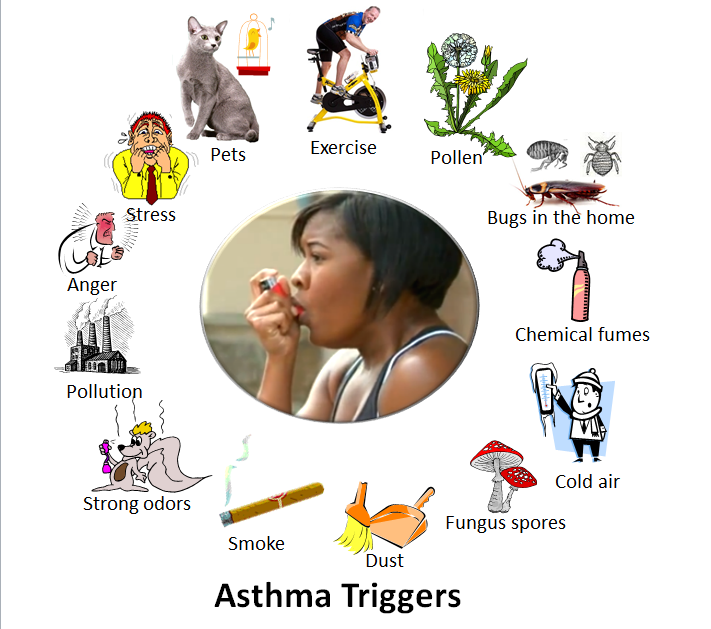Advancing Towards Asthma Prevention: Exploring Vaccination as a Potential Solution
In high school, I had a friend who was properly fine before the summer break. We would play together and even spend time chatting after school since we were borders at the time. When he got back, I saw he had an inhaler, and was forced to ask what changed. It was so that when he went home during the holiday, he had an attack at night where he couldn't breathe well. He was rushed to the hospital and was placed on pure oxygen. He said the next thing his mum told him, was that the doctor said he had allergy-induced asthma after several checkups.
It was heartbreaking and so is it to date because he still goes around with his inhaler. Asthma is a disease that millions of people suffer from around the world, with the WHO saying that it affects about 339 million people worldwide as of 2020, with about 455 000 deaths yearly. This disease can persist throughout the lifetime of a person. Currently, asthma can be treated but it doesn't have a cure available for now. While there is no cure, there have been numerous studies on vaccination for asthma. Let's discuss the hope of a potential vaccine against asthma.

wikimedia.org
Affecting both children and adults alike, asthma is one of the most common immune diseases. While asthma can vary, most times, I will discuss allergy-induced asthma, because that was what my friend suffered from. Simple things like dust mites, grasses, or tree pollens would trigger him, so he was always with his inhaler.
The lungs normally would have few immune cells in them but patients with this type of asthma suffer from chronic inflammation causing the airways to tighten when an allergy is inhaled. This is because the lungs are swollen already and just need a tiny trigger to make the immune system in the lungs overreact leading to an attack. While in the normal state, these triggers aren't harmful, but with patients who suffer from asthma, the triggers are seen as antigens and are attacked squarely.
When the triggers are encountered, the T-Helper 2 cells attack the particles and cause other immune responses to occur as they release Interleukin 13 and Interleukin 4. When the immune system attacks the particles, the airway of the patient becomes narrow with mucus being released, as it is required to remove particles from the lungs but since it is released in a higher amount, it begins to block the airways causing asthma where the patient begins coughing, wheezing, and also experience shortness of breath.
These symptoms cause a reduction in oxygen level in the body and organs do not receive enough oxygen, which would lead to damage of the organs followed by death if not treated early. Patients with asthma attacks are usually administered corticosteroids which are hormones that inactivate the hyperactive immune system in the lungs thereby reducing inflammation and causing the asthma attack to be reduced.
Scientists have been able to try out vaccines on mice to prevent asthma. For easy understanding, let me give a quick explanation of how vaccines work. When vaccines are introduced, the body's immune system starts to attack as though they are fighting against the antigen which might attack them in the future, causing the immune system to be previously exposed to them, helping to fight them off if there is ever an encounter thereby creating immunity.
rawpixel.com
With the Asthma Vaccine, IL-13 and IL-4 are blocked in the mice, and these made these caused fewer mice to develop asthma symptoms compared to mice that were unvaccinated. The test was successful on mice with two conjugate vaccines. These vaccines are designed to neutralize the antibodies that will stick to both cytokines which would stop them from reacting. The vaccines are conjugate vaccines and they bind the IL-4 and IL-13 with a non-toxic form of the Diphtheria protein which tells the body that the cytokines are not helpful in the lungs and antibodies should be created against them.
While a cure for asthma remains elusive, the development of effective vaccines in humans could potentially prevent the occurrence of allergic immune responses. Until then, current treatments such as corticosteroids remain essential in managing asthma symptoms and improving the quality of life for those affected by this chronic condition.
Further Reading
https://www.who.int/news-room/facts-in-pictures/detail/asthma
https://www.nhs.uk/conditions/asthma/treatment/
https://www.ncbi.nlm.nih.gov/pmc/articles/PMC6207595/
https://www.ncbi.nlm.nih.gov/books/NBK526018/
https://pubmed.ncbi.nlm.nih.gov/33976140/
https://www.ncbi.nlm.nih.gov/pmc/articles/PMC7569362/
https://aacijournal.biomedcentral.com/articles/10.1186/s13223-018-0279-0
Asthma growing up is one of the disease I really feared most as a lot of things I heard about it. Glad that science is coming with the treatment
Thanks for your contribution to the STEMsocial community. Feel free to join us on discord to get to know the rest of us!
Please consider delegating to the @stemsocial account (85% of the curation rewards are returned).
Thanks for including @stemsocial as a beneficiary, which gives you stronger support.